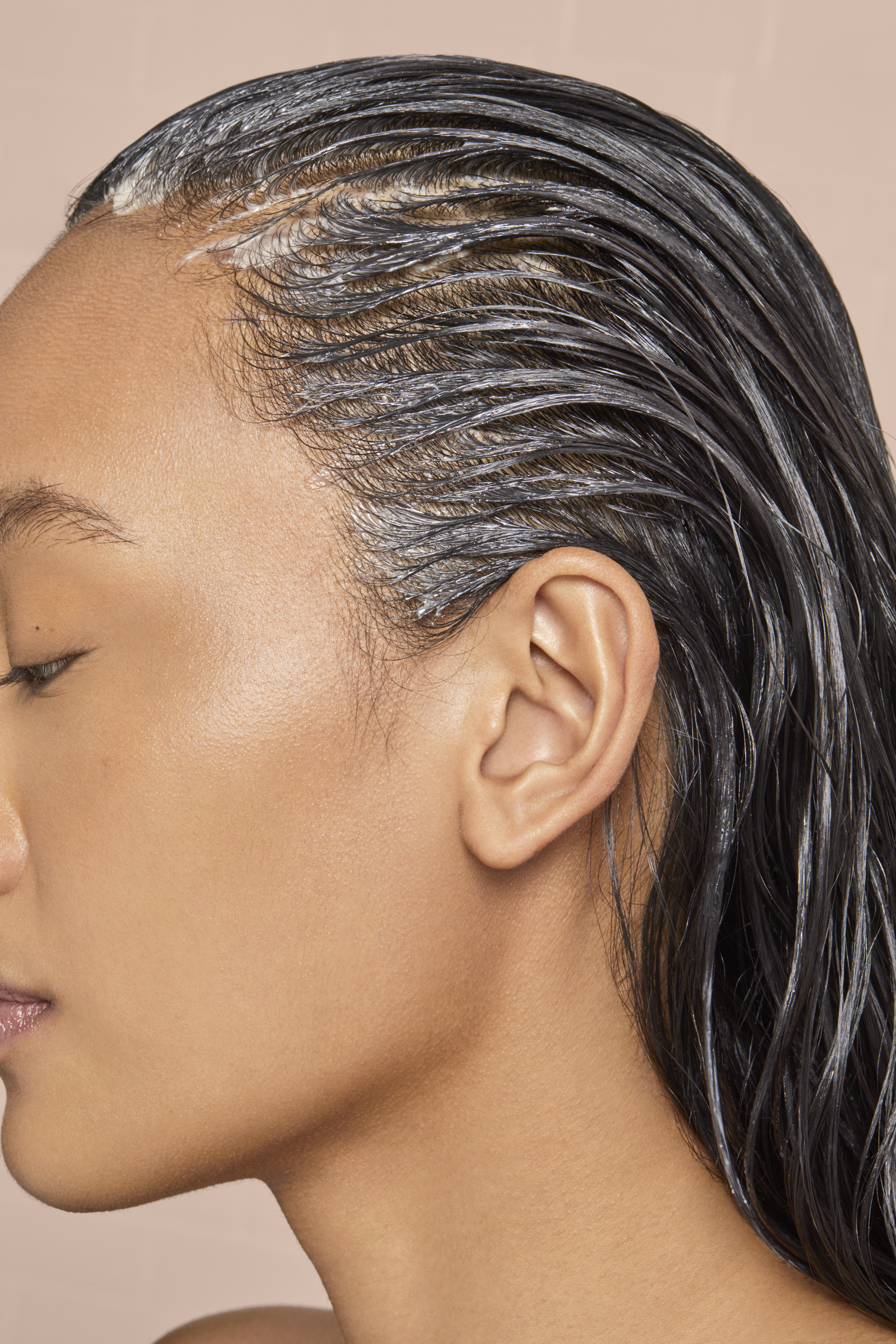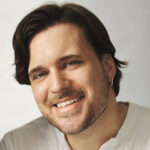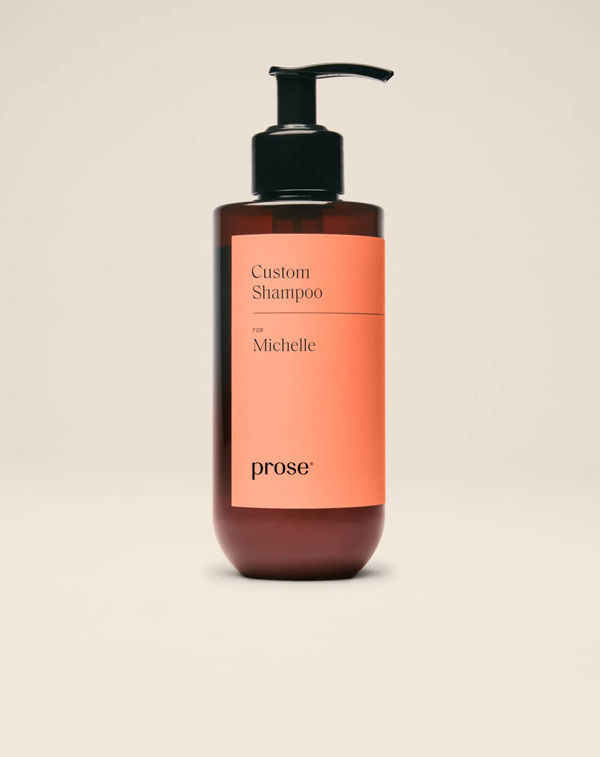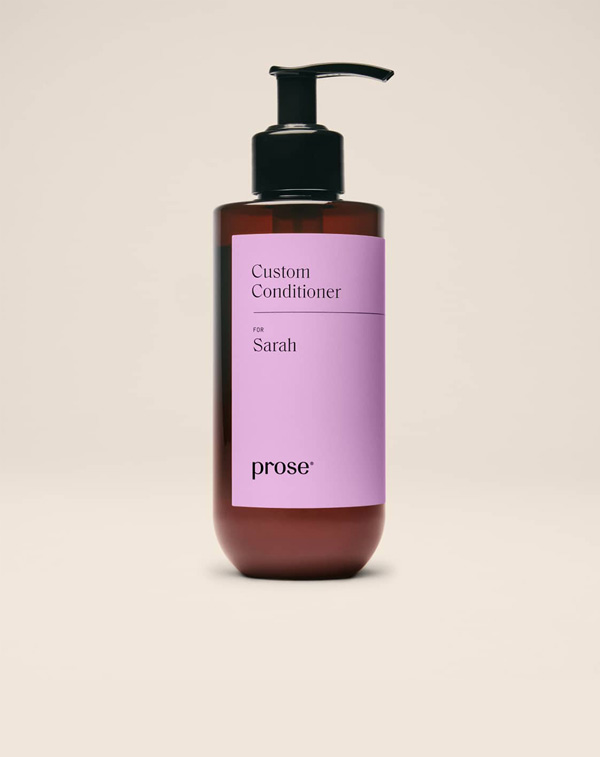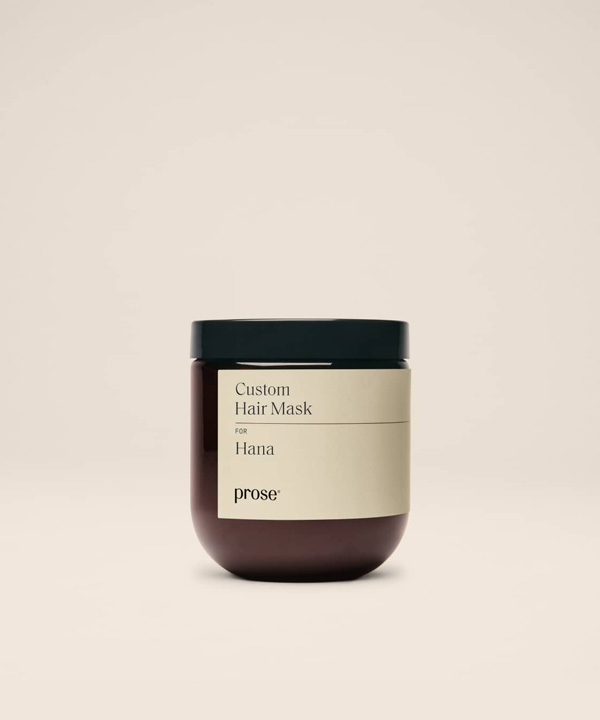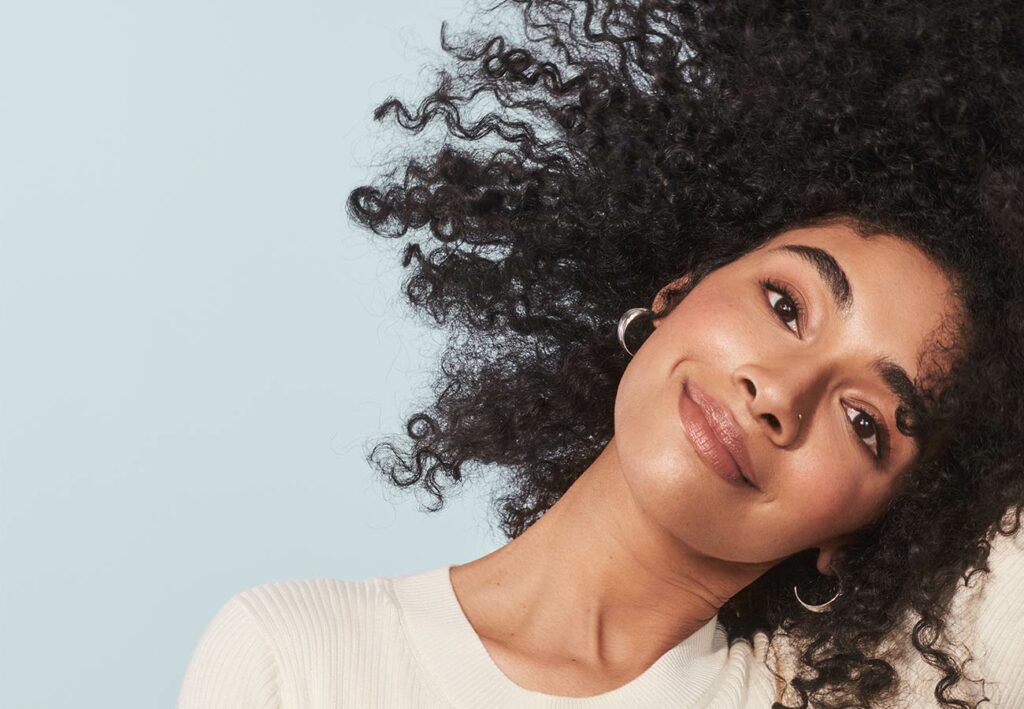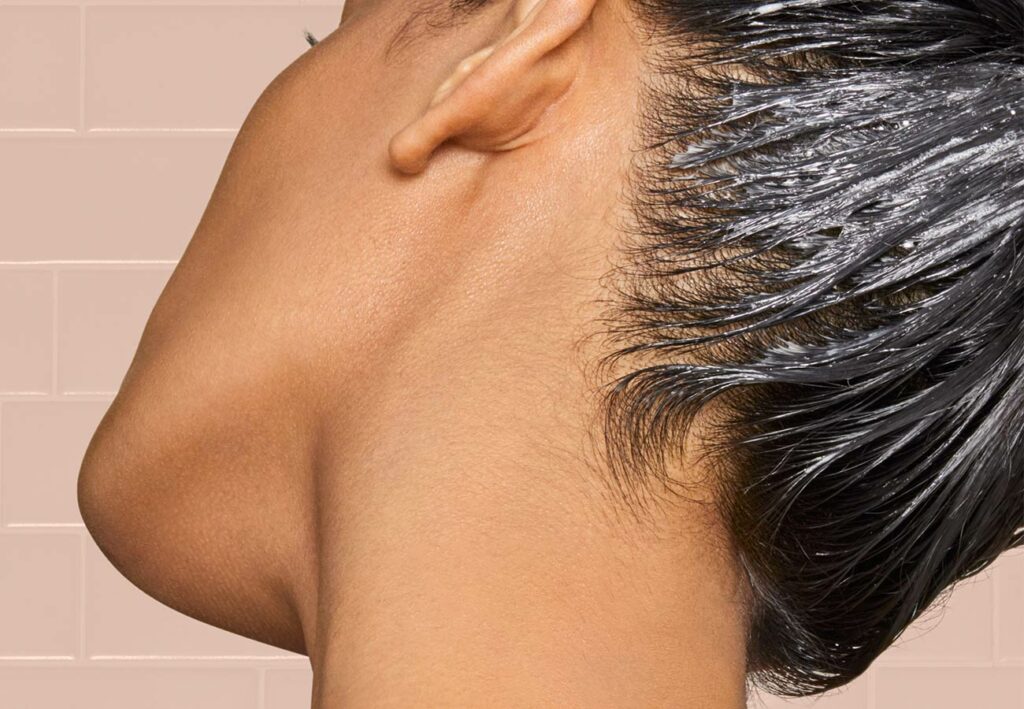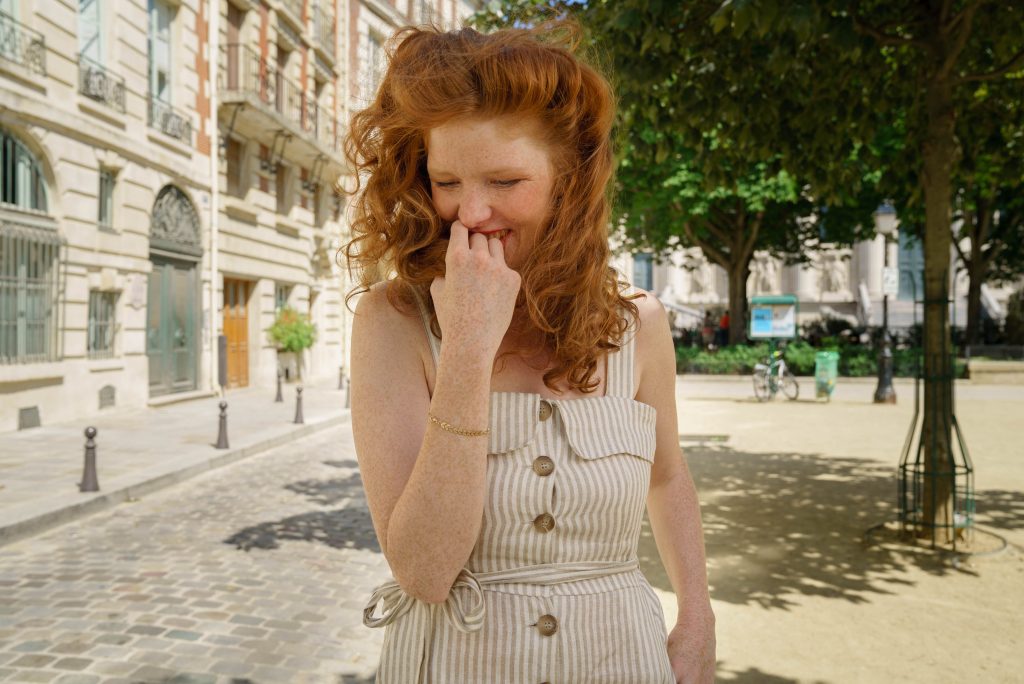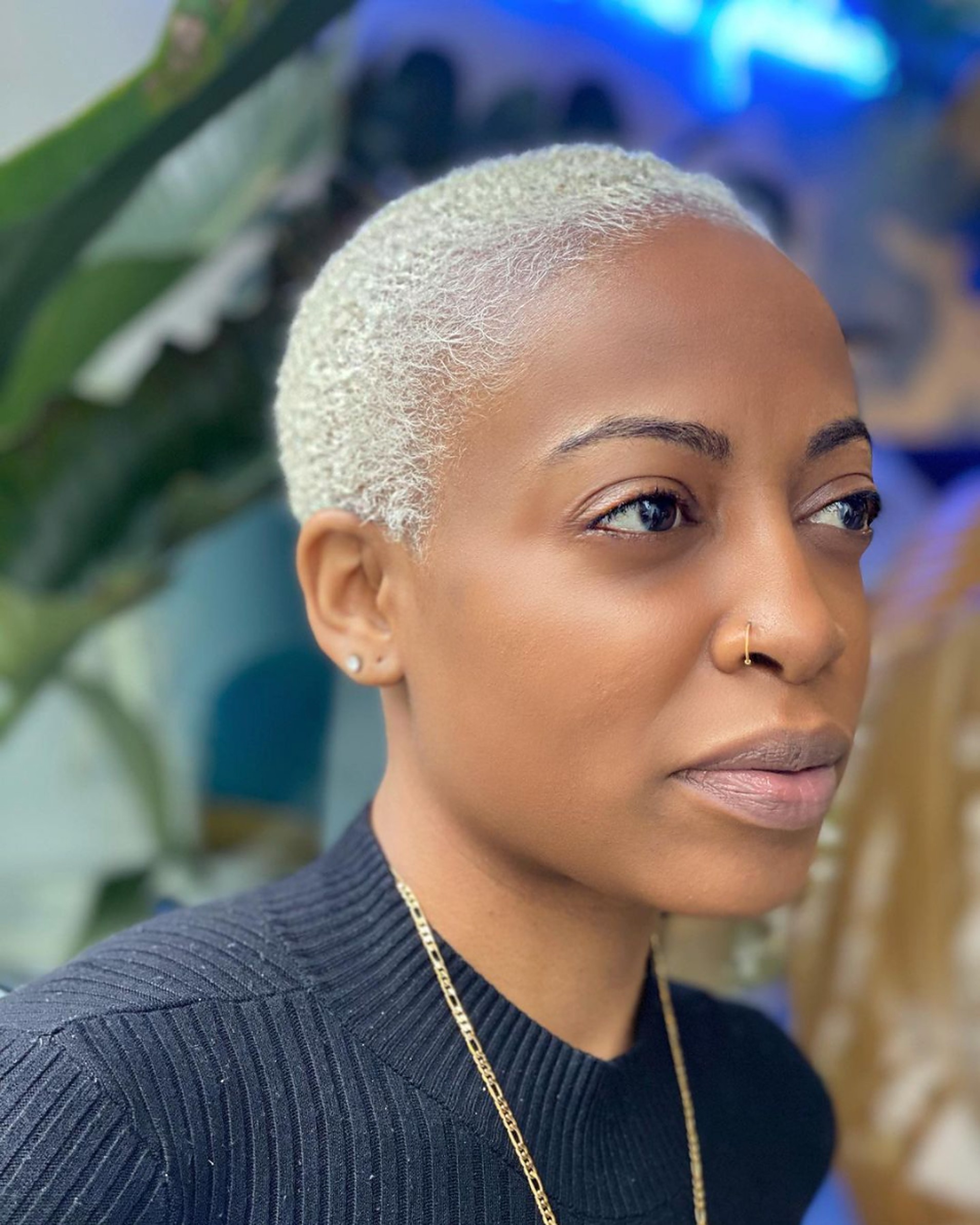1. Why scalp health is so important
“A healthy scalp is the foundation of healthy hair,” says Stenson. Again, that’s because it’s literally the foundation of your hair. If you let sweat, oil, grime, and hair products build up around the scalp, then it’s going to choke out and suffocate the follicles. And you also need to pump nutrients and moisture back into the scalp in order to fortify it—in order to fortify the hairs—so it’s a two-pronged approach.
How do you approach this? “We need to ensure that we are using the proper products and ingredients that do not clog the scalp, or that decrease the production of healthy hair follicles,” Stenson says. But it is far more than doing a frequent shampoo…
2. The good and bad ingredients for your scalp
“First, you want to stay away from ingredients like parabens and sulfates,” Stenson notes. “They aren’t good for promoting long-term hair health. While most brands have long avoided parabens, many still use sulfates in their shampoos. (Typically, if a shampoo is just a few bucks, then it’s going to use sulfates. Cost is not always an accurate litmus test for whether or not something is good for you, but it’s largely accurate with shampoos.) “Always make sure you’re using professional-grade shampoos and conditioners for the best results,” Stenson adds.
He likes scalp-friendly ingredients like tea tree oil (which fights bacteria and fungus), aloe vera (which soothes), coconut oil (for hydration and fortification) as well as witch hazel (for oil control). However, there are far more ingredients that brands put into their products that are doubly beneficial for hair and scalp health.
3. How scalp treatments work
While you can get a lot of these good ingredients in shampoos and conditioners, one of the most common places to find them is in scalp treatments. These are typically once-weekly pre-wash treatments that deeply penetrate the scalp and help neutralize any bad microbes while soothing the scalp and nurturing the follicles. Apply them to clean, towel-dried (but still damp) hair, Stenson says, and then follow it up with a proper shampoo and conditioner.
4. The top bad-scalp habit to avoid
What is Stenson’s biggest advice for avoiding scalp drama? Do not use any all-in-one products. Instead, keep everything separated and intentional. “Each product plays a critical role in the health of your hair and scalp,” he says. There is no reason a product needs to be both a shampoo and a conditioner (much less a body wash and shave cream and leave-in conditioner, etc…). Combining these steps with a singular product shows that you’d rather hasten the process instead of bolster it. Plus, if you’re trying to save money, then that’s an up-front allusion. Besides having to refill those 2-in-1s twice as fast, you’ll also need to rely more heavily on scalp treatments and hair retention / revival strategies down the line.
5. Consider scalp scrubs and massages, too
One of the best steps in scalp care is the massage, which boosts circulation to the follicles and in turn improves nutrient delivery. This means stronger, healthier hairs. You can do this with your own hands on a daily or every-other-day basis, or you can combine it with a gritty scalp scrub once every week in the shower. “This product will help loosen the build-up that may be clogging the hair follicle,” says Stenson. It can also exfoliate dead skin from the surface, ensuring that you don’t get any flakes, and also avoid any clogged pores up there. And don’t worry about it causing exacerbated hair fall. Whichever hairs fall out during a scrub were bound to fall in the following day or two anyway, before starting their natural growth cycle again.
Shop products featured in this story:

